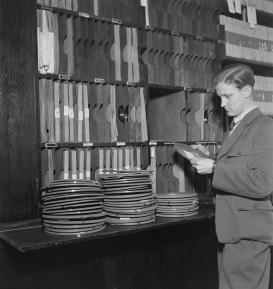This project addresses the early history of sound archiving in broadcasting and its relationship to new arenas of cultural and knowledge production. For present purposes, the focus will be on the relationship between the Berliner Lautarchiv (cofounded by Wilhelm Doegen) and subsequent efforts in broadcasting to create, organize, and disseminate disk recordings. Doegen’s interest in radio is evidenced in the archive’s workflow charts and in his efforts to play his recordings on Berlin radio in the period around 1930. The first radio archive in Berlin, founded in 1930, similarly sought to acquire voice portraits and recordings by colonial researchers. Yet its collection of voices and musical sounds was posited within the logics of media production (content reuse), radio experimentation, and new modes of publicity. This case study will be used as a departure point for exploring radio archival practices concerned with the recorded voice, as based on techniques for documenting the social (such as reportage, interviews, outdoor recording) and ideas about preserving contemporary history and spoken narrative (oral history). A central concern is investments in the recorded voice as a research resource, for which comparisons will be drawn with other early examples of radio research (for example Paul Lazarsfeld) and oral history (for example Allan Nevins) from the 1930s onwards.

